Judge orders Vote Yes referendum to alter Fayetteville City Council to go before voters
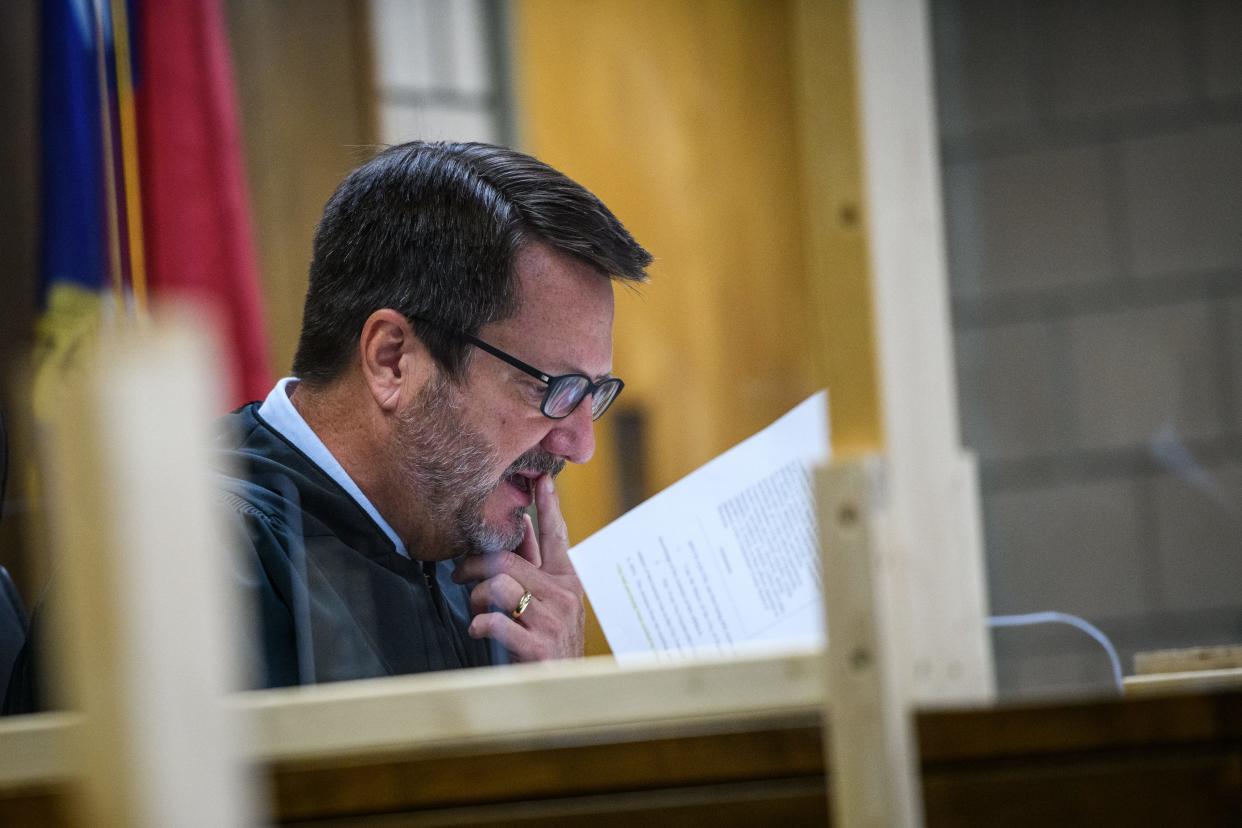
Fayetteville voters will get to decide this fall whether to dramatically alter the City Council, under a court ruling Cumberland County Superior Court Judge Jim Ammons announced Thursday afternoon.
Ammons ordered the Vote Yes Committee referendum to be put on the November ballots in Fayetteville. The referendum asks voters to change the city charter and convert four of the City Council seats from district seats to at-large, citywide seats. Ammons’ ruling overturns a Fayetteville City Council decision on Aug. 22 that blocked the measure from the ballot despite a petition of more than 5,000 voters that called for an election to be held on the idea.
“Quite frankly, at the end of the day, a group of concerned citizens circulated a petition that the City Council fully knew about,” Ammons said. “They needed 5,000 signatures. They got those 5,000 signatures. Apparently, six out of 10 of the City Council arbitrarily decided that they weren’t going to allow the ballot to be printed.”
Previous coverage: Vote Yes advocates sue Fayetteville City Council
Opinion: ‘Vote No’ on change to Fayetteville City Council
Opinion: Vote Yes Fayetteville is an opportunity for repentance
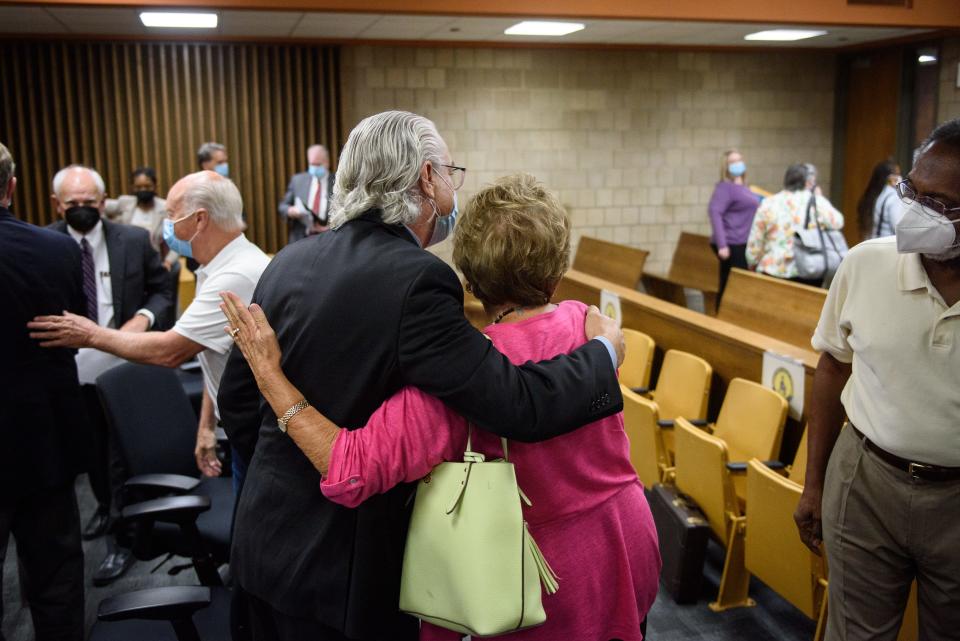
Ammons ordered the county Board of Elections to put the referendum on the ballot.
State law says when a petition that meets state requirements for a ballot initiative is brought to the City Council, the election shall be held. But some members of the City Council, including the mayor, questioned whether the Vote Yes Committee had taken all the steps required by law to conduct the petition drive. The council voted 6-4 against holding the referendum.
Vote Yes Committee members sued this week following the City Council decision, bringing the matter before Ammons on Thursday.
“I want to point everybody to the North Carolina Constitution, Article I, Section 2: Sovereignty of the people,” Ammons said as he announced his decision in favor of Vote Yes Committee members Bobby Hurst, Karl Merritt and Suzanne Pennink. “All political power is vested in and derived from the people; all government of right originates from the people, is founded upon their will only, and is instituted solely for the good of the whole.”
The City Council has scheduled an emergency meeting at 9 a.m. Friday to discuss the lawsuit.
“As you would expect, there are a number of questions regarding today’s developments,” Mayor Mitch Colvin said on Thursday evening. “I asked the Attorney to do a placeholder for a Special Emergency Meeting to discuss the Council’s options.”
What the change would do
The 10-member City Council elects nine council members from districts of approximately 23,200 people each (based on the city’s population in 2020 of 208,501), plus the mayor is elected citywide. The Vote Yes organization wants to turn four of the nine districts into citywide seats, saying this will make those council members more focused on the whole city instead of just their individual districts.
The remaining districts would be enlarged to 41,700 people each.
Instead of electing one council member plus the mayor, each voter would pick five council members plus the mayor.
Opponents of the Vote Yes plan have said they think it aims to dilute the voting power of residents.
Year-long effort to collect signatures
The Vote Yes Committee started working in March 2021 to collect signatures as required under North Carolina’s petition process to get the idea to the city ballots. They met with the county elections director and filed paperwork as she directed. The law required the petitioners to collect at least 5,000 signatures from Fayetteville voters. In the end, the committee obtained 5,009 valid signatures.
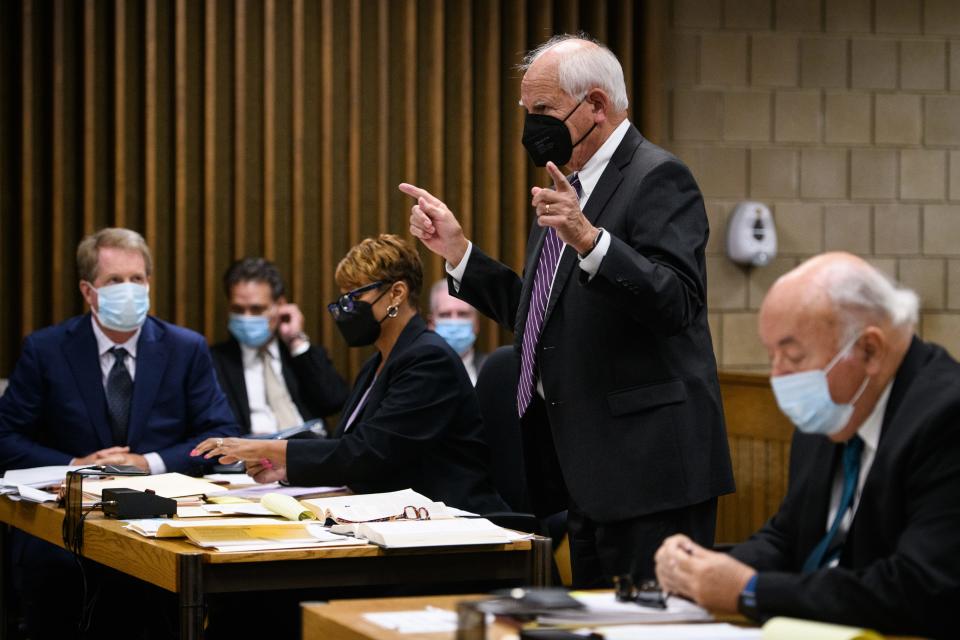
Lawyer Eddie Speas, representing the city, contended that the Vote Yes Committee had made two errors that negated the activists’ efforts:
The committee had not filed a document called “notice of circulation” with the Cumberland County Board of Elections that it was going to circulate a petition in Fayetteville. A state law requires such a notice to be filed. However, according to comments during Thursday’s hearing, the Board of Elections has no “notice of circulation” form for petitioners to fill out and submit.
Even if the committee’s March 2021 meeting and paperwork qualify as a “notice of circulation,” Speas said, he cited another law says that petitions for an election and referendum “become void and of no further effect one year after the date the notice of circulation is registered with the county board of elections” and the election shall not be held.
Ammons was unpersuaded.
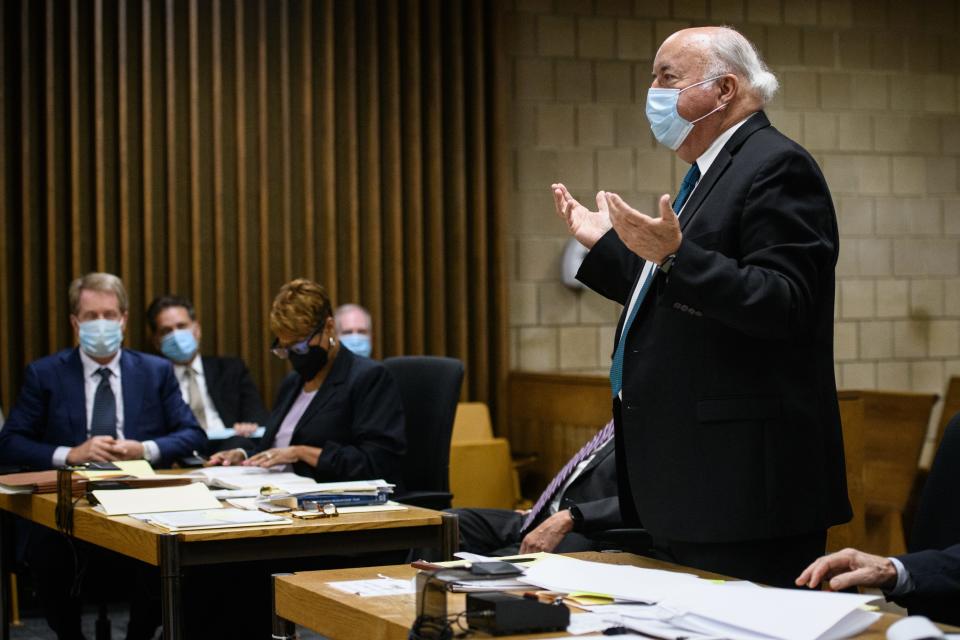
Regarding the notice of circulation, the Vote Yes Committee’s meeting with the elections director in March 2021 coupled with its filing of paperwork as she instructed counted as the notice, Ammons said. “From that point forward, it was well known that this petition was circulating through town — through Fayetteville. People were asked to sign it,” he said.
Regarding the one-year deadline following the notice of circulation, Ammons treated that as a deadline for submitting the 5,000-plus signatures to the Board of Elections for certification. The Vote Yes Committee turned in more than 5,700 signatures before the deadline, of which the Board of Elections later said 5,009 were certified.
Will the city appeal the ruling?
The mayor, who voted Aug. 22 against putting the Vote Yes referendum on the ballot, said the city has not decided yet whether it will appeal Ammons’ ruling.
“It certainly was an interesting ruling,” he said. “And we’ll speak with our legal team to — to analyze what our next steps are.”
Vote Yes activists were pleased by Ammons’ decision and said they are ready to execute a campaign plan to promote the referendum.
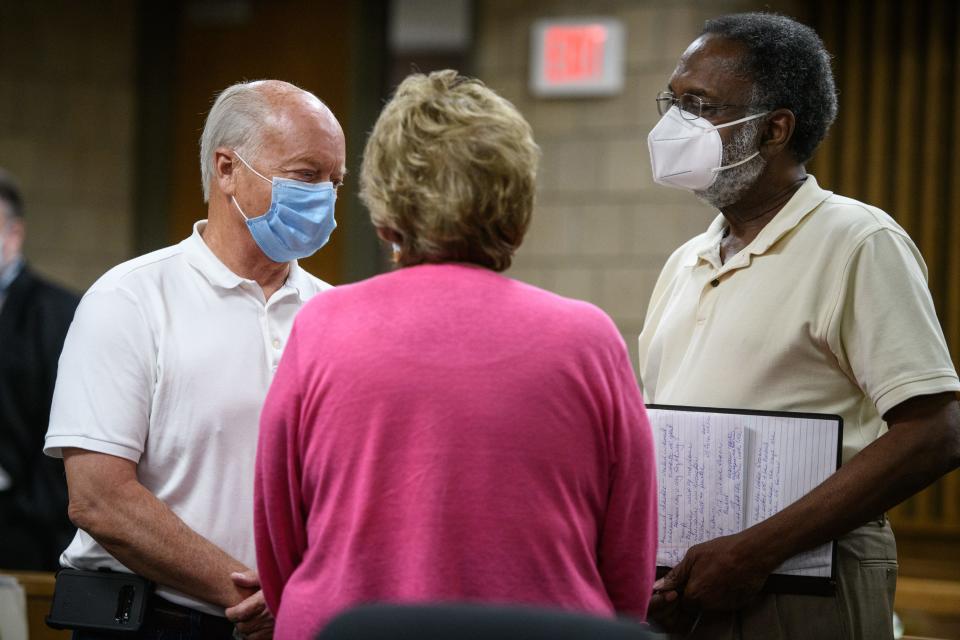
“We’re just glad that now that this referendum will go for the people to vote. Up or down, just glad that they have that opportunity to vote,” said Hurst, who is the chair of the Vote Yes Committee.
Merritt said the Vote Yes Committee’s case was solid.
The people who vote are the ones who care about the city, said Pennink, “so we’ve got to make sure now to get the people to come out.”
“If they don’t want that, let them come out and say it,” she said.
Early voting by mail starts Sept. 9. The election ends with Election Day on Nov. 8.
Senior North Carolina reporter Paul Woolverton can be reached at 910-261-4710 and pwoolverton@gannett.com.
This article originally appeared on The Fayetteville Observer: Referendum to alter Fayetteville City Council to go before voters

